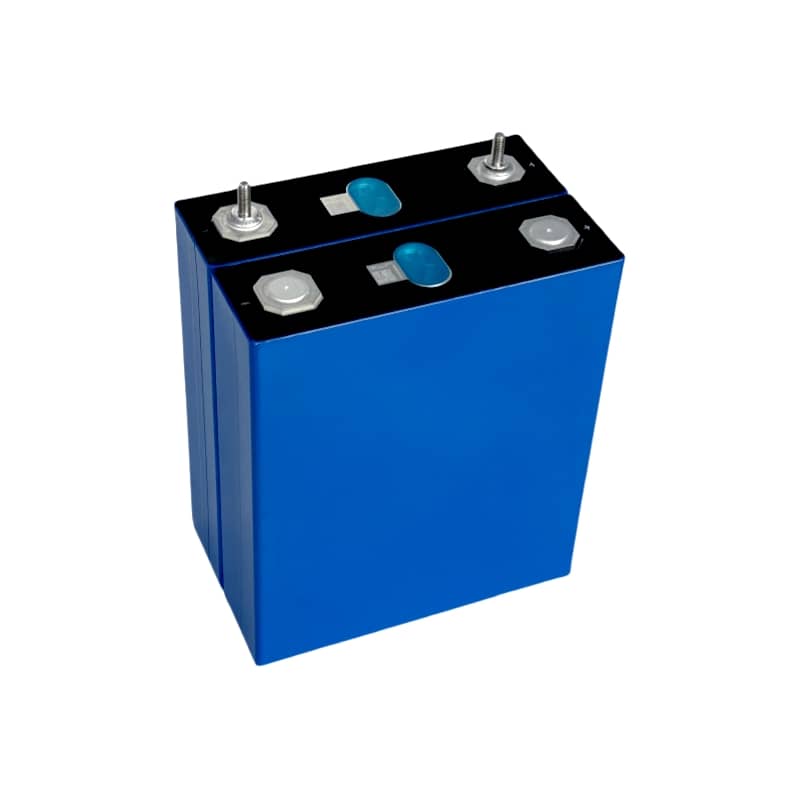Blog
Maximizing the LiFePO4 Battery Life: Expert Guide
2025-10-11 | Calvin

LiFePO4, or Lithium Iron Phosphate, is one of the most advanced battery technologies available today. Known for its high energy density and long cycle life, the LiFePO4 battery boasts a lifespan that is typically 5 times longer than traditional lithium-ion batteries. However, the longevity of these batteries isn’t fixed—it’s highly influenced by how they are used and maintained.
Table of Contents
Factors Affecting LiFePO4 Battery Life
While LiFePO4 batteries are designed for longevity, several external factors can impact their lifespan. Understanding these factors can help ensure that your battery continues to perform at its best.
- Charging Rate - Charging at an improper rate can significantly affect battery life. Always follow the manufacturer’s recommended charging voltage and current. Overcharging or undercharging can cause long-term damage, shortening the lifespan of the battery.
- Depth of Discharge (DOD) - Although LiFePO4 batteries are resilient to deep discharges, consistently draining them to very low levels can still affect their overall lifespan. For optimal longevity, try to avoid running the battery completely empty.
- Temperature - Extreme temperatures, both hot and cold, can shorten a battery’s life. High heat accelerates degradation, while cold temperatures can temporarily reduce capacity. For best results, always operate the battery within its recommended temperature range.
- Storage Conditions - Storing a battery in an environment that’s too hot, too humid, or too dry can lead to faster degradation. Proper storage, ideally at room temperature and with moderate humidity, helps preserve battery health over time.
- Number of Charge Cycles - LiFePO4 batteries are designed for over 4000 charge cycles, but each cycle gradually reduces the battery’s capacity. The more cycles a battery goes through, the more its power storage capacity will decrease over time.
- Cell Balancing - Batteries with multiple cells require proper balancing to ensure equal charge distribution across all cells. Failure to do so can lead to reduced performance and uneven wear, ultimately affecting battery life.
- Manufacturing Quality - The quality of materials and the precision of the manufacturing process directly influence the battery's longevity. Reputable manufacturers use high-quality components and strict quality control standards to ensure their batteries have longer lifespans.
How to Extend LiFePO4 Battery Life
By implementing a few simple practices, you can significantly extend the life of your LiFePO4 battery.
- Use the Recommended Charger - Always use the charger specified by the manufacturer. Charging with an inappropriate charger can lead to overvoltage or undervoltage, both of which can harm the battery.
- Control the Charging Rate - Charging at a slower rate (typically between 0.2C and 0.5C) can enhance the lifespan of your LiFePO4 battery. Charging too quickly (above 1C) can increase internal temperatures and shorten the battery's life.
- Maintain Optimal Temperature - Ensure that your battery is used in a temperature-controlled environment. The ideal operating temperature for LiFePO4 batteries is between 0°C (32°F) and 45°C (113°F). Avoid exposing the battery to temperatures outside this range to prevent thermal degradation.
- Proper Storage - If you're not using the battery for an extended period, store it at about 30-50% charge in a cool, dry place. Avoid leaving the battery fully discharged or fully charged for long periods, as this can lead to reduced performance over time.
FAQs
Q: What is the average lifespan of a LiFePO4 battery?
A: A typical LiFePO4 battery lasts for over 4000 charge cycles, which translates to around 10-15 years depending on usage and care.
Q: Can I extend the battery life beyond the recommended cycles?
A: Yes, following best practices for charging, temperature control, and storage can help maximize the lifespan, even beyond the manufacturer’s estimate.
Q: What should I do if my LiFePO4 battery isn't holding a charge?
A: First, check if it’s being charged correctly. If the problem persists, the battery may have reached the end of its useful life, or there may be an issue with the Battery Management System (BMS).
Q: Is it safe to use a LiFePO4 battery in extreme temperatures?
A: No, extreme temperatures can damage the battery. Ensure the battery is operated and stored within the recommended temperature range for optimal performance.
- Next:How to Balance LiFePO4 Batteries: Complete Guide
- Previous:Tesla Battery Types: A Simple Guide for Model S, 3, X, and Y
Contact Details
Lithium LiFePO4 Batteries and Lithium LiFePO4 Cells Supplier - LiFePO4 Battery Shop
Contact Person: Miss. Elena Wang
WhatsApp : +8615263269227
Skype : +8615263269227
WeChat :15263269227
Email : info@lifepo4batteryshop.com
All Products
- A123 Battery (5)
- Sinopoly Battery (7)
- GBS Battery (16)
- CALB Battery (22)
- Cylindrical Cell (3)
- Energy Storage System (0)
- Battery Management System (2)
- Sodium ion Battery Cell (3)
- Lithium Titanate Battery (16)
- Ternary Lithium Battery Cell (11)
- REPT Battery (8)
- BYD Battery (2)
- CATL Battery (14)
- Thunder Sky Winston Battery (21)
- EVE Battery (29)
- LiFePO4 Battery Cell (4)
Certification
Customer Reviews
- I have fond memories of our meeting in Shanghai with LiFePO4 Battery Shop Elena. Your company left a strong impression on me with its impressive growth and professionalism. We both value straightforwardness and honesty, which I believe are the most important qualities in any partnership. I am confident that we can build a successful collaboration based on these shared values. —— Robert from USA
- I've been working with LiFePO4 Battery Shop for years, and their reliability is unmatched. While other suppliers frequently change sales teams, LiFePO4 Battery Shop has consistently provided exceptional service with a stable team. Their commitment to quality and customer support truly sets them apart. —— Henry from Australia



